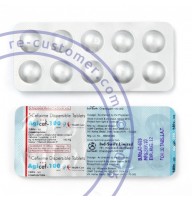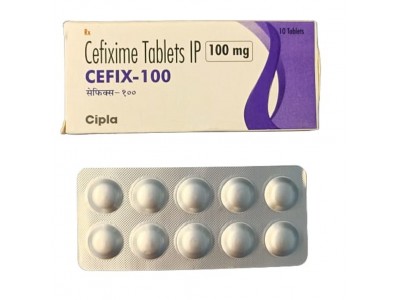Yes, you can use antibiotics like cefixime while having your period. Menstruation does not affect the efficacy or safety of taking antibiotics. Antibiotics are prescribed to treat bacterial infections, and their function is independent of the menstrual cycle. However, there are some considerations to keep in mind to ensure that the treatment is effective and that any potential side effects are managed properly.
Firstly, it’s important to follow the prescribed dosage and schedule for cefixime. Consistency in taking the medication as directed by your healthcare provider is crucial for effectively treating the infection. Missing doses or not completing the full course of antibiotics can lead to incomplete treatment and may contribute to the development of antibiotic-resistant bacteria.
During your period, you might experience common menstrual symptoms such as cramps, bloating, and fatigue. While taking cefixime, you may also encounter some side effects like gastrointestinal discomfort, including nausea, diarrhea, and abdominal pain. These side effects can sometimes be similar to or exacerbate menstrual symptoms. It’s important to stay hydrated and maintain a balanced diet to help mitigate these side effects. If you experience severe or persistent side effects, consult your healthcare provider.
Another aspect to consider is the interaction of antibiotics with other medications or supplements you may be taking. For example, if you use nonsteroidal anti-inflammatory drugs (NSAIDs) like ibuprofen for menstrual pain relief, there are generally no direct contraindications with cefixime, but it’s always best to confirm with your healthcare provider or pharmacist. Additionally, if you use hormonal contraceptives, it's worth noting that while most antibiotics do not significantly affect the efficacy of birth control pills, it's still a good practice to discuss this with your healthcare provider.
Maintaining good personal hygiene during your period is always important but becomes even more so when you are dealing with an infection. Make sure to change sanitary products regularly and maintain a clean and dry environment to reduce the risk of any additional infections.
Stress management is also crucial during this time. Both an infection and menstruation can place stress on your body. Engage in stress-reducing activities such as light exercise, yoga, or meditation. Adequate rest and sleep are essential for recovery and overall well-being.
Furthermore, communication with your healthcare provider is key. Inform them that you are menstruating, as this information can sometimes be relevant to your overall treatment plan. They can provide specific advice tailored to your condition and answer any questions or concerns you might have about taking cefixime during your period.
In summary, taking cefixime during your period is safe and does not interfere with the antibiotic’s ability to treat a bacterial infection. Ensure you follow your healthcare provider’s instructions regarding the dosage and duration of the medication. Be mindful of potential side effects and manage them appropriately, considering the overlap with menstrual symptoms. Keep track of any other medications you are taking to avoid interactions, maintain good hygiene, manage stress, and get adequate rest. Always communicate openly with your healthcare provider to ensure a comprehensive approach to your treatment. By following these guidelines, you can effectively manage your health during your period while taking antibiotics like cefixime.

